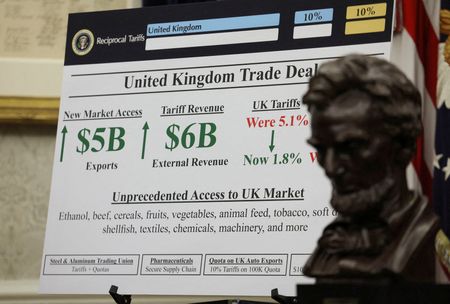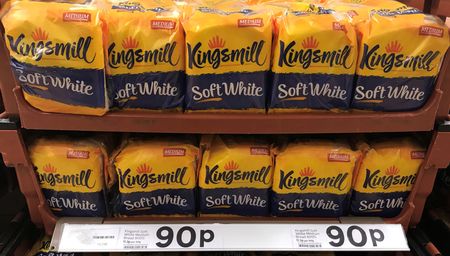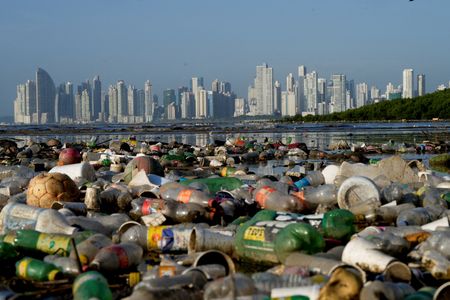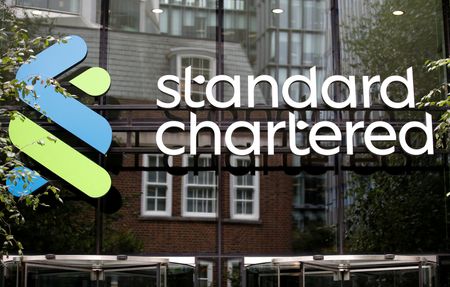By James Davey
LONDON (Reuters) -Britain’s government will not provide financial support to the struggling bioethanol industry, it said on Friday, leaving a sector hit hard by the UK’s tariff deal with U.S. President Donald Trump facing imminent collapse.
The failure of the industry, which supports thousands of jobs, could prove to be an embarrassment for Prime Minister Keir Starmer, who hailed May’s trade deal as a boost to businesses that would protect employment and attract investment.
It would also serve as a stark example of the global impacts of Trump’s assault on world trade, with the industry’s collapse set to deal a blow to production of byproducts including animal feed and carbon dioxide as well as the British farmers who supply the sector.
“We … have taken the difficult decision not to offer direct funding as it would not provide value for the taxpayer or solve the long-term problems the industry faces,” a government spokesman said on Friday.
The spokesperson said the trade deal had protected hundreds of thousands of jobs in the auto and aerospace industries.
However, under the agreement, the UK’s 19% tariffs on U.S. ethanol fell to zero, through a 1.4 billion-litre (370 million gallon) quota – a figure equating to the size of the UK’s entire ethanol market.
Britain has two major bioethanol plants in northern England – Associated British Foods’ Vivergo plant and one operated by Ensus, owned by Germany’s Sudzucker Group – which account for nearly all of its production capacity.
AB Foods, which had said in June it would shutter the Vivergo plant unless the government stepped in with an aid package, said on Friday it would start an orderly closure process immediately with production of bioethanol and animal feed ceasing by August 31.
Ensus has also said its plant faces closure.
Bioethanol is produced from crops such as wheat and is used to make petrol greener and to produce sustainable aviation fuel.
In June, Starmer’s government launched its industrial strategy, promising to invest in the green economy.
‘DEEPLY REGRETTABLE’
Both AB Foods and Ensus have said the trade deal, along with existing regulations that already gave U.S. producers an advantage in the British market, had made the environment impossible.
“It is deeply regrettable that the Government has chosen not to support a key national asset,” a spokesperson for AB Foods said, adding that the decision threw away Britain’s sovereign capability in clean fuels.
“Jobs in clean energy will now move overseas – principally to the U.S. but also to other countries with a more sensible regulatory environment,” the spokesperson added.
Ensus did not respond immediately to a request for comment.
The government spokesperson said it would work up proposals that ensure the resilience of the supply of carbon dioxide, which is used in the soft drinks and nuclear industries and in hospitals.
(Reporting by James Davey; Editing by Kate Holton and Joe Bavier)










